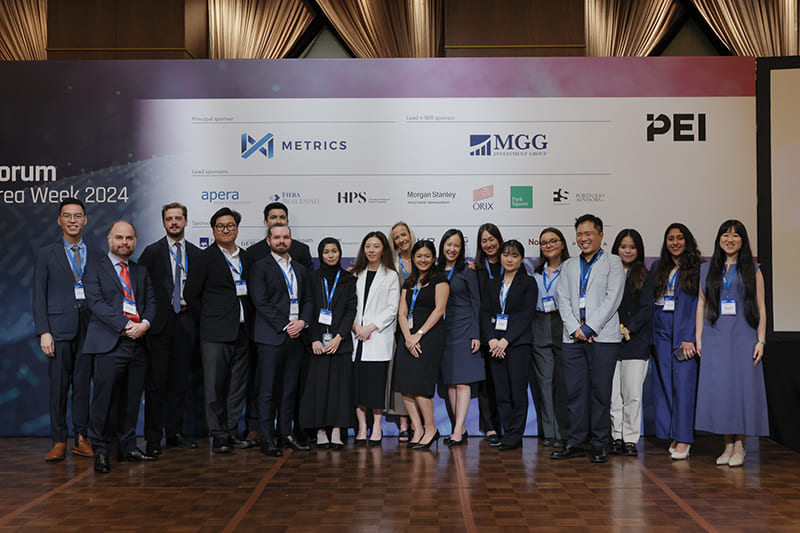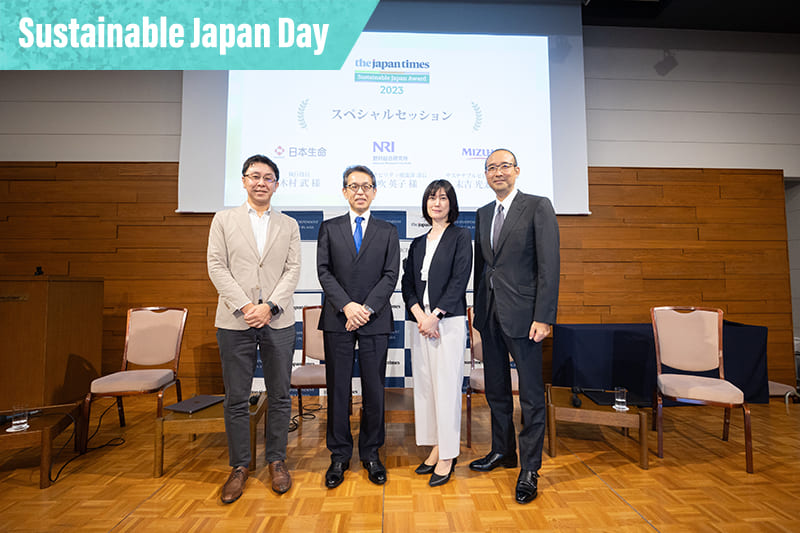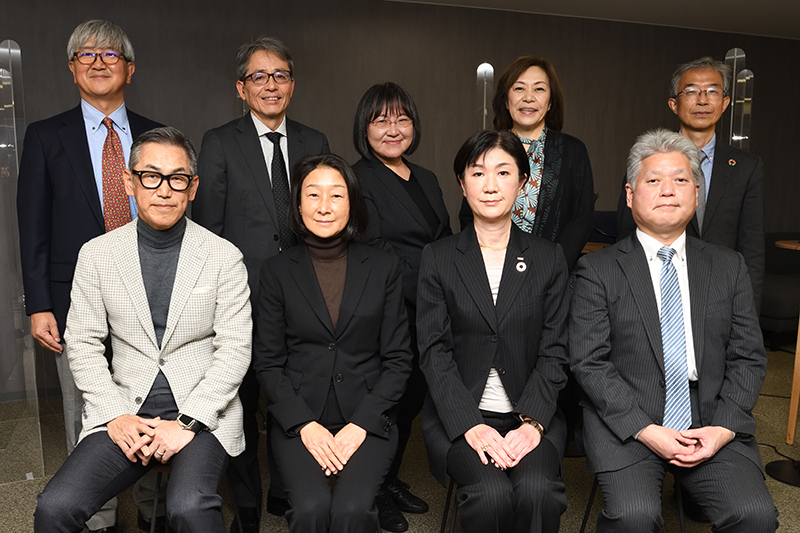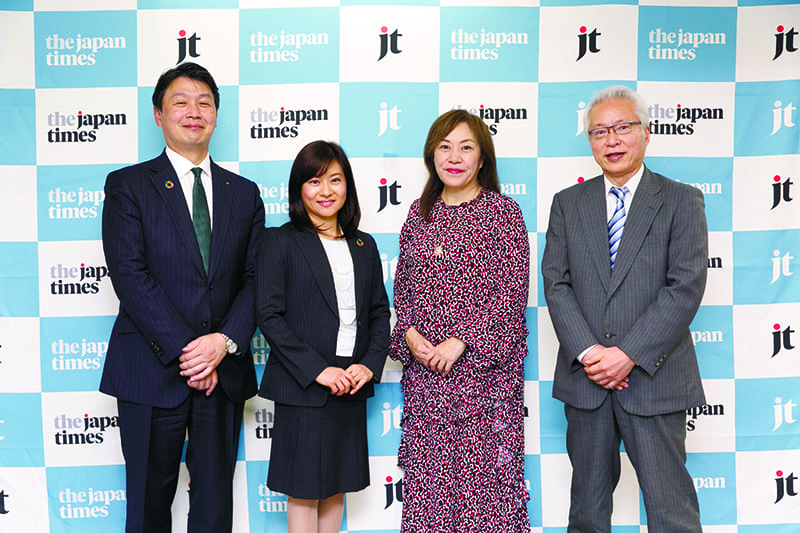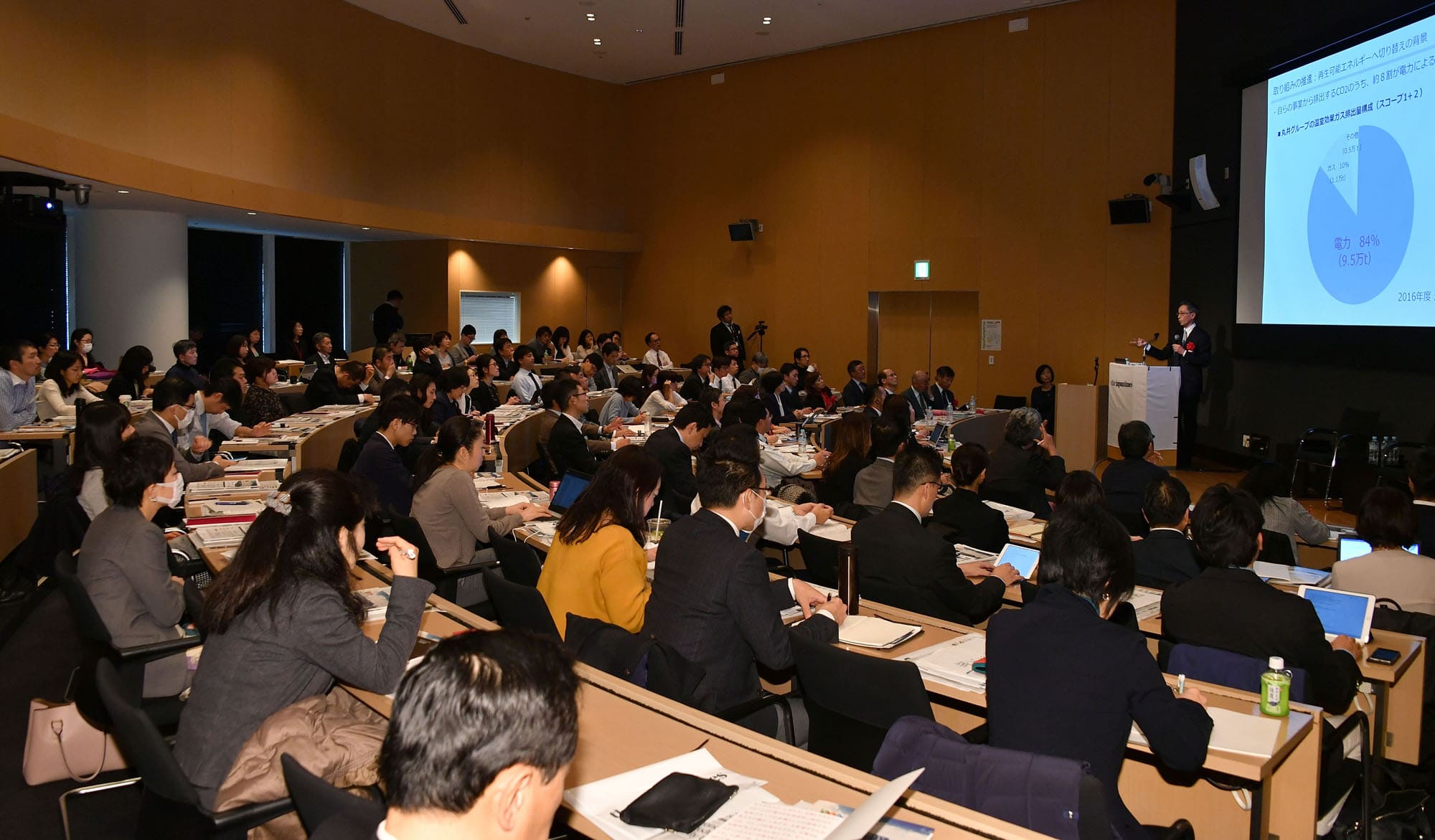June 21, 2020
Coronavirus likely to bring change to investment strategies

Finance experts shared insights about how the COVID-19 pandemic will impact responsible investment based on environmental, social and governance (ESG) factors both in Japan and abroad during an online seminar organized by the Japan Times ESG Consortium on May 25.
To kick-start the event, Michiyo Morisawa, Japan head of Principles for Responsible Investment and director of CDP Japan, gave an introductory speech as the chairperson of the Japan Times ESG Consortium. She stressed the importance of long-term perspective in investments, saying that emission reduction should not rely on the short-term economic slowdown caused by the COVID-19 crisis.
One of the speakers, Shunsuke Tanahashi, head of Partners Group Japan, has been engaging in ESG investment on a global basis for about 15 years. He pointed out that while ESG factors may often be used as a protective measure for a company, they actually have the proactive aspect of creating added values.
He explained the evaluation process of the prospective investees.
“After the initial negative screening, we narrow down our targets and conduct due diligence to pick good investment destianations, which is positive screening,” said Tanahashi.
“We acquire the majority of the shares of our target company and become its owner, so we share exactly the same interests with the investee,” he said. “We send experts from various fields to the management team and make them the CEO or directors to raise the value of the company. This is what is called entrepreneurial investment.” The company evaluates the performance of existing investees from various aspects from the ESG reports submitted by them. At the same time, Partner Group also manages ESG projects together with the companies.
Successful ESG examples
He shared some successful examples of such projects being effective in improving ESG factors in their portfolio companies. Kindercare, a U.S.-based child care service provider, managed to cut energy consumption by 12 percent by introducing an automatic electricity management system in each facility. USIC, a U.S. infrastructure company, implemented a drivers security program and succeeded in reducing culpable accidents by 20 percent. Vermaat Groep B.V., the Dutch market leader in high-end catering and hospitality services, has cut food waste by 10 percent through various efforts, including donations to food banks.
Partners Group is also closely monitoring how each of its investees is dealing with the COVID-19 situation. Tanahashi explained that all industries are affected in one way or another, with some facing special demands, while others suffer from unprecedented drops in sales.
“Some of our investee companies are also struggling in the short term, but the future is bright. They will all be stable in the long run,” said Tanahashi. “For example, in the case of Kindercare, they had no choice but to temporarily suspend the majority of their services due to the lockdown, which weighs upon their financial position. E-learning is not an option for small children, but Kindercare’s potential value has not changed. They provide a service that society needs,” he said, stressing that investors cannot allow such companies to fail.
Responsibility of shareholders
“There are moments when there is nothing that a company can do even if the business itself is meaningful in terms of ESG. That is when shareholder engagement demonstrates the power and responsibility,” said Tanahashi. Partners Group has published a message on its website to announce that the company is offering a portofolio employee support fund worth approximately $10 million to support employees at their portfolio companies during the COVID-19 crisis.
“Creating a system in which we share the same ship with our partners and survive together through difficult times — this is our concept that is perfectly in line with ESG values,” he said. The risk of pandemics is an inherent part of society. Tanahashi noted that all companies must have realized how much they are benefiting from various stakeholders every day, including their employees and those who support the supply chains as the companies go through the pandemic.
“Selfish corporate management is nonsensical,” said Tanahashi.
In response to a question during the online seminar about the group’s risk scenarios for a second or third wave of coronavirus, Tanahashi said: “There will definitely be second and third waves, but when they will come depends on each country. We will have to closely monitor the situation in each area.”
Tanahashi explained that the mergers and acquisitions market is also stagnant at the moment mostly because the acquiring side is unsure about the acquisition prices that were set before the pandemic.
“Investment and M&A activities from now will have to take pandemic risks into consideration. We need to be aware that the world will not return to what it was before the spread of COVID-19, and plan how we can live with the risk,” he said.
While Tanahashi shared insights about the global situation regarding ESG investments amid the COVID-19 crisis, Minoru Matsubara, executive officer of the Responsible Investment Division at Resona Asset Management Co., talked about the domestic landscape of ESG investments of today.
Matsubara noted that Resona Asset Management has been dedicated to long-term investment.
“The source of about 90 percent of the ¥20 trillion that we invest is pensions, half of which is invested into stocks and other half in bonds,” he said.
He explained that the focus of long-term investors is to visualize less obvious or unquantifiable values of investee companies such as future cash flow, profit, governance, strategy and corporate culture. They also need to have a comprehensive understanding of short, medium and long-term values.
He noted that the spread of COVID-19 has had a significant impact on the financial sector. “The capital cost is increasing in the stock market generally. Now the question is how each company can bring down its capital cost under the circumstances. We need appropriate information disclosure on this,” he said.
Future business models
He explained that the next step is to start dialogues with the investees about how they are planning their future business models and corporate governance to better understand their management strategies.
“We need to know, for example, what they prioritize and where they plan to put their efforts to establish new ways of life, work and corporate management in the current era,” he said. He also noted that it is an investors job to think how and which part of investee companies’ plans should be modified. “In the global trend of a shift to stakeholder capitalism, social responsibility of enterprises is growing in all aspects,” Matsubara said. He added that the COVID-19 crisis also triggered investors to create new evaluation standards for investee companies. Some of these include what companies can do for the national crisis, their reputability as employers, how they manage supply chains, if they act swiftly against risks and if their balance sheets are solid.
Asked what investors expect from companies seeking investments in terms of ESG factors, Matsubara replied, “It’s important to sort out and clarify how ESG activities are related to the company’s sustainability to illustrate how they can create good businesses in the long term.”
He explained investors are more interested in how external factors such as climate change or pandemics will impact companies rather than how companies intend to address those problems.
He noted that many companies still consider ESG-related efforts as costs.
“However, 97.9 percent of investing institutions in Japan use ESG-related information to make investment decisions according to a survey conducted by the Ministry of Economy, Trade and Industry,” he said.

